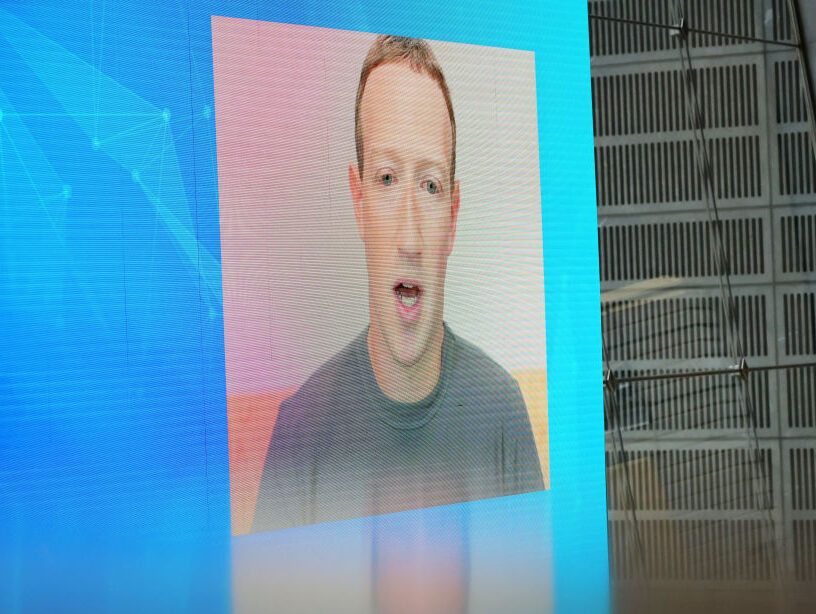
A group of writers headed by celebrated novelist Michael Chabon and Tony Award-winning playwright David Henry Hwang are suing Facebook parent Meta as well as ChatGPT maker OpenAI, alleging in two separate suits that their artificial intelligence platforms engaged in copyright violations with tens of thousands of books.
The dual proposed class-action lawsuits have the potential to turn into an epic battle if more writers join in — a growing possibility, as more authors are waking up to the fact that Silicon Valley is allegedly mass harvesting books to train A.I. bots.
In the suit against Meta, which was filed this week in a California federal court, the writers accuse the Facebook parent of vacuuming up mass quantities of books across the Internet in order to train the company’s “Llama” large-language model using data that included pirated versions of their writings.

Meta CEO and founder Mark Zuckerberg speaks during the New York Times DealBook Summit at Lincoln Center on November 30, 2022 in New York City. (Michael M. Santiago/Getty Images)
The same writers filed a similar proposed class-action lawsuit last week against ChatGPT maker OpenAI, claiming that their books and plays are particularly valuable for AI language training as the “best examples of high-quality, long form writing,” according to a Reuters report.
In addition to Chabon and Hwang, the other writers leading the suits are authors Matthew Klam, Rachel Louise Snyder, and Ayelet Waldman.
Chabon (pictured) is the author of the novels Wonder Boys and The Mysteries of Pittsburgh. He won the Pulitzer Prize for literature for his 2000 novel The Amazing Adventures of Kavalier & Clay, and he was a co-creator and writer for the TV series Star Trek Picard. Hwang’s stage drama M. Butterfly won the Tony for best play in 1988.
The two new suits follow a similar one brought by another group of writers headed by comedian-actress Sarah Silverman, alleging Meta and OpenAI used their written content without permission to train A.I. language models.
Other writers including Stephen King, Zadie Smith, and Michael Pollan are among a growing list of authors whose works are being used to train A.I. platforms, according to a recent report.
Yet the authors’ lawsuits could be facing an uphill legal battle.
As Vulture noted recently, the Supreme Court determined in 2016 that Google Books’ practice of summarizing texts — and showing excerpts to users — didn’t violate copyright law. This means the law could be interpreted to permit the use of books to train software, like A.I. applications.
Follow David Ng on Twitter @HeyItsDavidNg. Have a tip? Contact me at [email protected]





